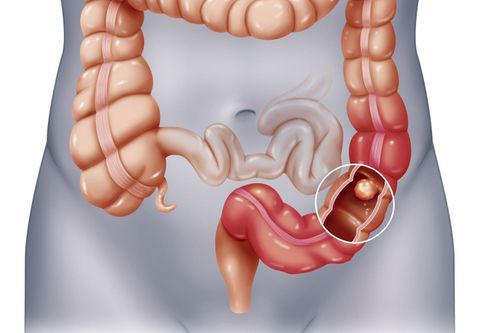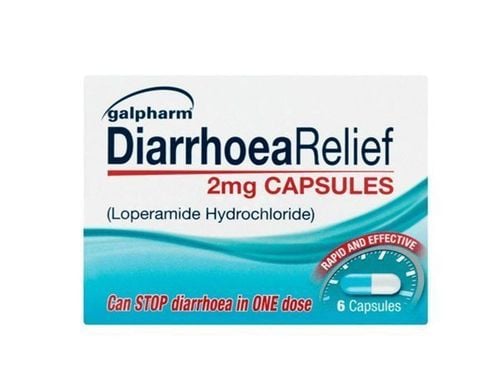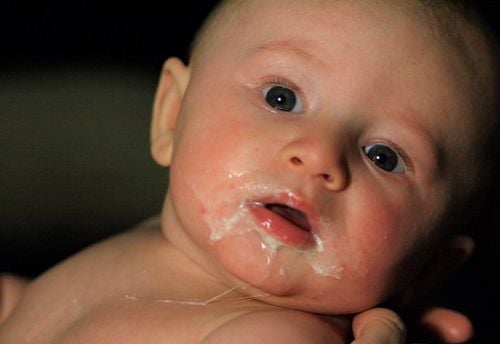This is an automatically translated article.
The article was professionally consulted with Master, Doctor Ngo Thi Oanh - Pediatrician - Department of Pediatrics - Neonatology - Vinmec Ha Long International General Hospital.In addition to respiratory diseases, children are also prone to gastrointestinal diseases. The main causes are due to the child's incomplete digestive system, prolonged use of antibiotics, inappropriate ingredients for their age, or unsafe food. ... One of the common digestive diseases in children is diarrhea. When children have vomiting, fever, go outside, parents need to be alert for diarrhea.
1. What is called diarrhea?
Diarrhea is the passage of loose or watery stools more than 2 times in 24 hours.Acute diarrhea is a condition in which the bowels are more frequent than usual and change in nature, the stools are watery or bloody, lasting less than 14 days.
Normal breastfed babies can have bowel movements 5-7 times a day, but the stools are thick, green, with a sour smell, and often go out immediately after feeding, and the baby has no fever, sucks a lot, plays happily. It's not a disease at all.
Parents need to understand the definition of diarrhea, if the child has more than 2 bowel movements in 24 hours, but the stool is normal, it is not called diarrhea. To be considered diarrhea, the child must have more than 2 loose or watery stools in 24 hours.
Trắc nghiệm: Sự phát triển tinh thần, vận động của bé thế nào là đúng chuẩn?
Khi nào bé biết nói, biết hóng chuyện hay biết cầm cốc là "đúng chuẩn"? Điểm xem bạn biết được bao nhiêu mốc phát triển tinh thần, vận động "đúng chuẩn" của bé nhé!The following content is prepared under supervision of Thạc sĩ, Bác sĩ y khoa, Ma Văn Thấm , Nhi , Phòng khám Đa khoa Quốc tế Vinmec Dương Đông(Phú Quốc)
2. Causes of diarrhea in children
Causes of diarrhea in children are:Usually viral. A small number of cases are caused by bacteria and parasites. Or due to indiscriminate and prolonged use of antibiotics. Or due to digestive disorders absorbed in the intestines when changing the type of milk.
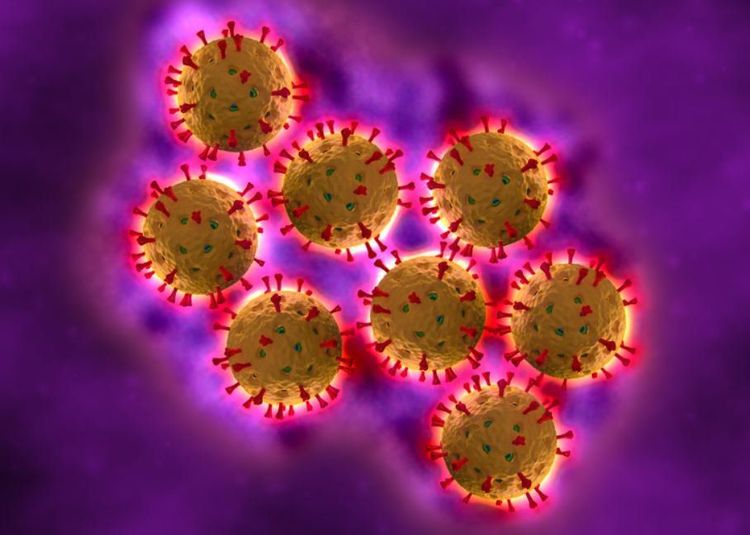
3. Symptoms of diarrhea in children
When a child has diarrhea, the following symptoms may appear:The child shows signs of fatigue, loss of appetite. Children have loose, yellow or green stools, which may be accompanied by mucus, blood, or undigested food. Children nausea, vomiting food. Children may have a low-grade fever or a high fever, sometimes with a high fever causing convulsions. Children with colic, crying. Children straining. Manifestations of dehydration such as: struggling, restless or worse, lethargy, difficult to wake up, fontanelle (in infants), sunken eyes, dry lips, little urine, thirst for constant drinking, Skin pinch disappears slowly. Severe dehydration can be dangerous for a child. Diarrhea doesn't seem dangerous, but if not diagnosed and treated properly, it can completely endanger the life of children. Therefore, when parents see children with vomiting, fever and unusual bowel movements, they need to be alert to diarrhea.
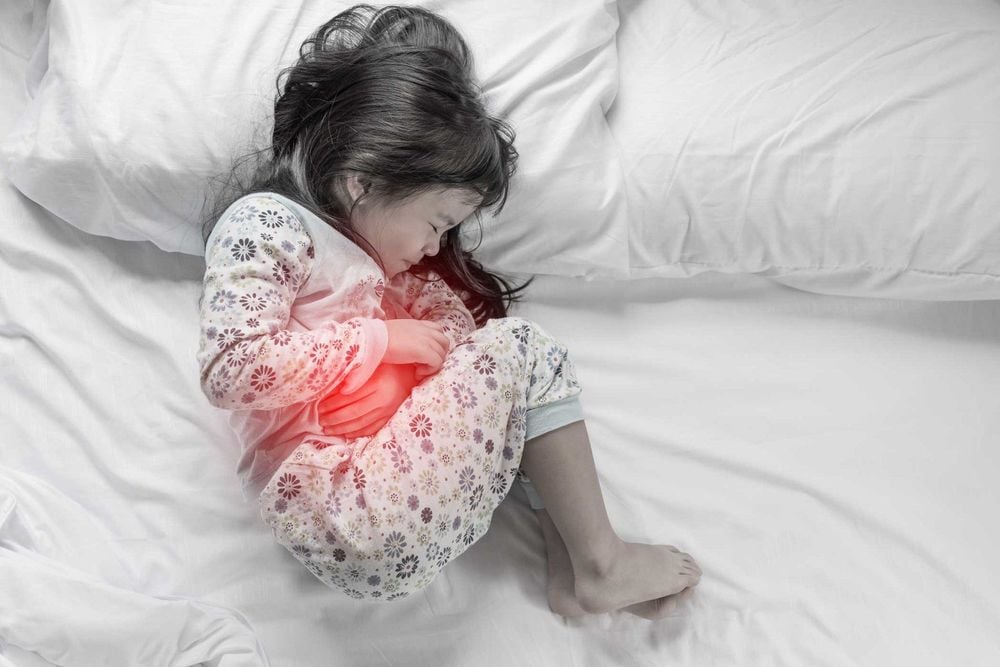
Newborn babies often vomit. Children who are healthy suddenly vomit, with fever, diarrhea: it can also be caused by ear-nose-throat disease, or because digestive substances move in the opposite direction. Children suddenly have vomiting, no fever but do not want to drink, have abdominal pain and can't defecate, it may be a digestive disorder or a more dangerous condition is intussusception, intestinal obstruction. In this case, you also need to see a doctor immediately. Children with vomiting many times, back and forth, stop gaining weight: may be due to ear infection or urethritis. Young children often vomit due to psychological problems, want to pamper their mothers. Older children, if vomiting is accompanied by abdominal pain and fever, may be due to diseases such as appendicitis (requiring hospitalization), hepatitis, ...
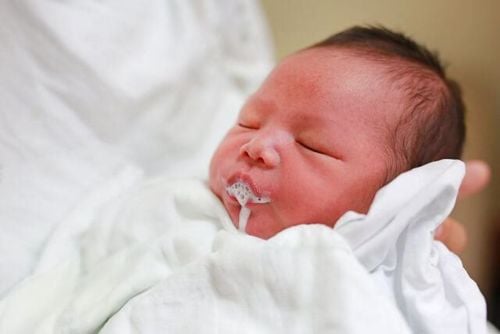
4. Treatment of acute diarrhea in children
For children who do not have the above signs of dehydration, who are still playing, nursing, and eating well, they can be cared for at home, without the need to use antibiotics or drugs.Give your baby plenty of water to drink: for babies who are still breastfed, feed them more often and for longer than usual because babies need energy to function, as well as strengthen to fight off diseases. Replenish electrolytes for children with - oresol: note that you need to mix the correct ratio of water according to the instructions on the package, because if you mix less water, it will make the dehydration of the child worse. For children under 2 years old, drink another 50-100ml after each bowel movement. For children over 2 years old, drink 100-200ml after each bowel movement. You can give your child a spoonful or small sip. In addition, other types of water can be used such as: Sugar brine: 01 teaspoon of salt + 08 teaspoons of sugar + 01 liter of boiled water. Salted porridge: 01 teaspoon of salt + 01 handful of rice + 01 liter of boiled water. Salted coconut water: 01 teaspoon of salt + 01 liter of coconut water. It is necessary to continue feeding children: mothers often have the mentality of not feeding their children or restricting them to eat, leading to malnutrition in children, making diarrhea worse. Children need to eat as usual, without abstaining from anything, can divide meals to make it easier for children to digest. The use of drugs such as antipyretics, antibiotics or digestive enzymes should be strictly according to the doctor's prescription.
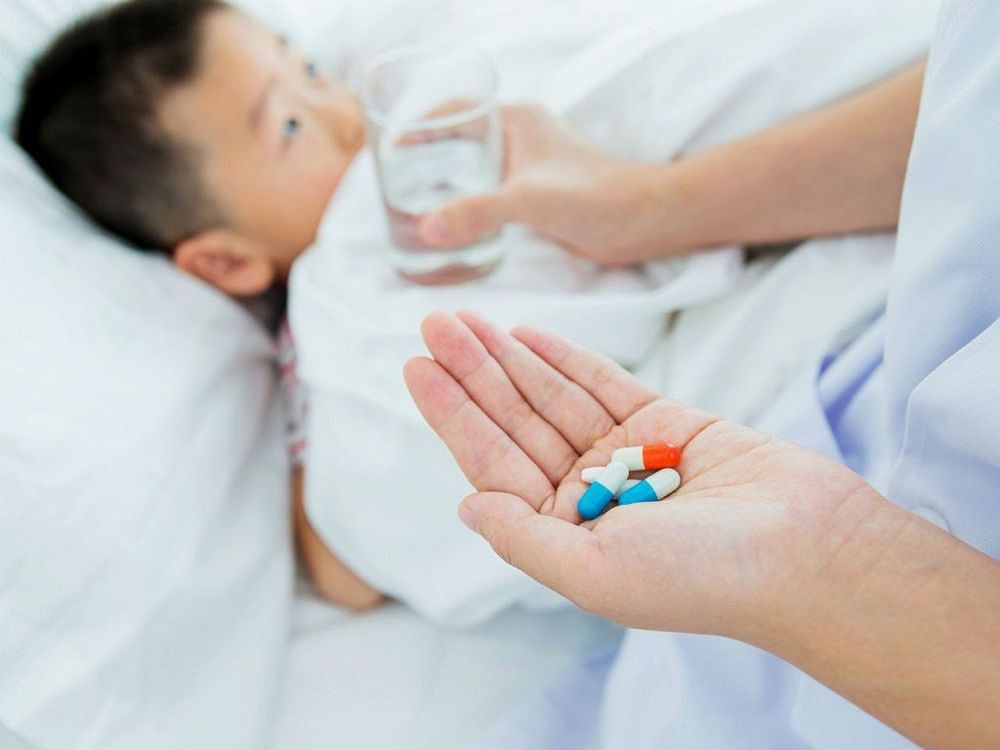
5. When to take your child to the doctor?
When a child has one of the following signs of fullness, it is necessary to take the child to the doctor immediately:The child shows signs of extreme thirst, dry lips, crying without tears. There is blood in the stool. Child has more than 8 bowel movements within 6 hours. Children vomiting a lot, abdominal pain. Children show signs of weakness, lethargy. The child has a high fever continuously over 38.5 degrees Celsius. When the child has diarrhea for more than 3 days, the above care is taken but the symptoms do not improve.
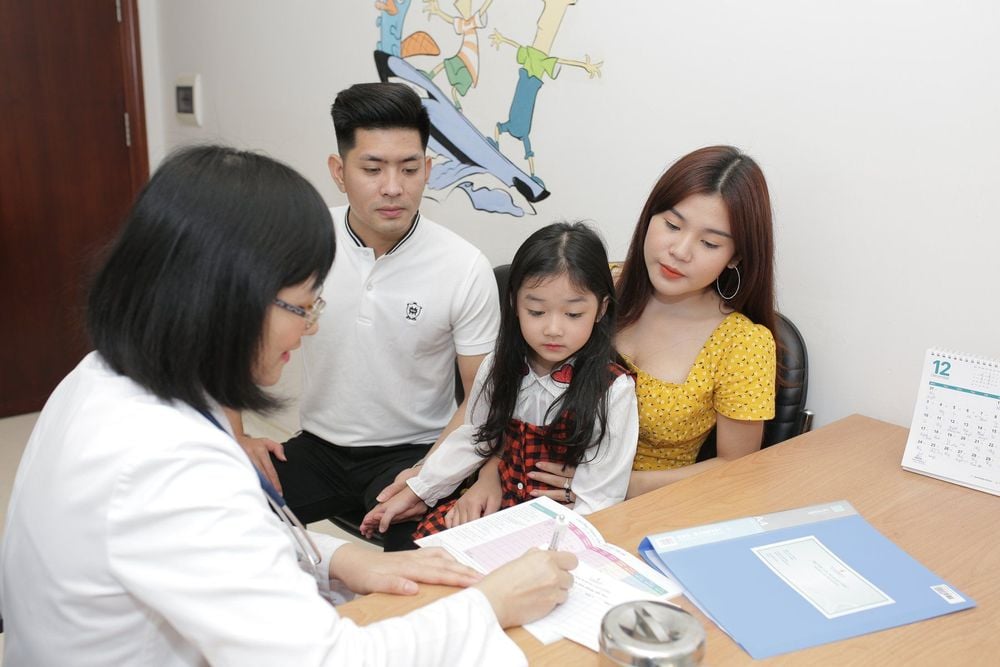
6. Preventing diarrhea in children
Parents need to do the following to prevent diarrhea in children:Need to wash children's hands before eating and after each use of the toilet. Parents need to wash their hands after each cleaning for the child, before preparing food and before feeding the child. Child waste and wipes must be disposed of immediately. Wash bed linens and diapers contaminated with feces. Food for babies must be cooked thoroughly and old foods should not be given to children. In Vietnam, 7 out of 10 children under 5 years old are zinc deficient and 8 in 10 pregnant mothers are zinc deficient. The prevalence of zinc deficiency in pregnant women is 80.3%, women of childbearing age 63.6% and children under 5 years old is 69.4%. The most common manifestations of zinc deficiency in children are growth retardation, mild and moderate malnutrition, delayed growth in height, and some observable symptoms such as anorexia or decreased appetite, decreased suckling, and no meat. fish, slow digestion, mild constipation, persistent nausea and vomiting in children. In addition to reasonable zinc supplementation, parents also need to provide their children with other important vitamins and minerals such as lysine, chromium, B vitamins,... resistance to minor illnesses and less digestive problems.
Please visit the website vimec.com regularly and update useful information to take care of your baby and family.
Please dial HOTLINE for more information or register for an appointment HERE. Download MyVinmec app to make appointments faster and to manage your bookings easily.





